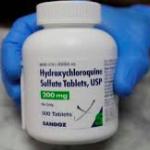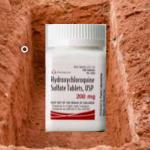Point: Meta-analysis of randomized controlled trials shows it does work when given early.
Dr. Nigel Bark, Chairman American Council on Science and Health
hydroxychloroquine controversy
A paper came out in Nature on July 22 that further underscores earlier studies that show that neither the malaria drug hydroxychloroquine nor chloroquine prevents SARS-CoV-2 – the virus
The farce that might be remembered as "Hydroxychloroquine Hysteria " was bad news from the start.
Within a few hours, several groups of scientists have raised increasing concerns about the integrity of the work.





